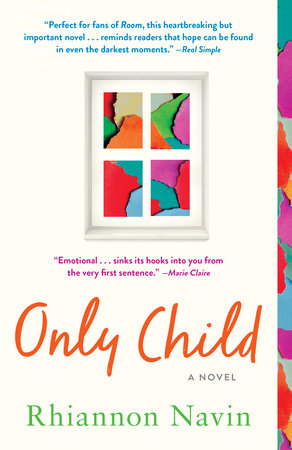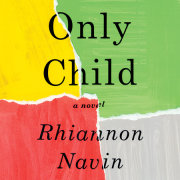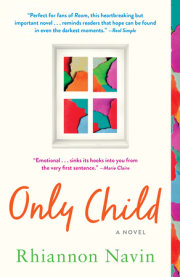[1]
The Day the Gunman Came
The thing I later remembered the most about the day the gunman came was my teacher Miss Russell’s breath. It was hot and smelled like coffee. The closet was dark except for a little light that was coming in through the crack of the door that Miss Russell was holding shut from inside. There was no door handle on the inside, only a loose metal piece, and she pulled it in with her thumb and pointer finger.
“Be completely still, Zach,” she whispered. “Don’t move.”
I didn’t. Even though I was sitting on my left foot and it was giving me pins and needles and it hurt a lot.
Miss Russell’s coffee breath touched my cheek when she talked, and it bothered me a little. Her fingers were shaking on the metal piece. She had to talk to Evangeline and David and Emma a lot behind me in the closet, because they were crying and were not being completely still.
“I’m here with you guys,” Miss Russell said. “I’m protecting you. Shhhhhhh, please be quiet.” We kept hearing the POP sounds outside. And screaming.
POP POP POP
It sounded a lot like the sounds from the Star Wars game I sometimes play on the Xbox.
POP POP POP
Always three pops and then quiet again. Quiet or screaming. Miss Russell did little jumps when the POP sounds came and her whispering got faster. “Don’t make a sound!” Evangeline made hiccupping sounds.
POP Hick POP Hick POP Hick
I think someone peed in their underwear, because it smelled like that in the closet. Like Miss Russell’s breath and pee, and like the jackets that were still wet from when it rained at recess. “Not too much to play outside,” Mrs. Colaris said. “What, are we made of sugar?” The rain didn’t bother us. We played soccer and cops and bad guys, and our hair and jackets got wet. I tried to turn and put my hand up and touch the jackets to see if they were still very wet.
“Don’t move,” Miss Russell whispered to me. She switched hands to hold the door closed, and her bracelets made jingling sounds. Miss Russell always wears a lot of bracelets on her right arm. Some have little things called charms hanging off them that remind her of special things, and when she goes on vacation she always gets a new charm to remember it. When we started first grade, she showed us all her charms and told us where she got them from. Her new one that she got on the summer break was a boat. It’s like a tiny version of the boat she went on to go really close to a huge waterfall called Niagara Falls, and that’s in Canada.
My left foot really started to hurt a lot, and I tried to pull it out only a little so Miss Russell wouldn’t notice.
We just came in from recess and put our jackets in the closet, then math books out, when the POP sounds started. At first we didn’t hear them loud—they were like all the way down the hallway in the front where Charlie’s desk is. When parents come to pick you up before dismissal or at the nurse’s office, they always stop at Charlie’s desk and write down their name and show their driver’s license and get a tag that says visitor on a red string, and they have to wear it around their neck.
Charlie is the security guy at McKinley, and he’s been here for thirty years. When I was in kindergarten, last year, we had a big party in the auditorium to celebrate his thirty years. Even a lot of parents came because he was the security guy already when they were kids and went to McKinley, like Mommy. Charlie said he didn’t need a party. “I already know everyone loves me,” he said, and laughed his funny laugh. But he got a party anyway, and I thought he looked happy about it. He put up all the artwork we made for him for the party around his desk and took the rest home to hang it up. My picture for him was right in the middle at the front of his desk because I’m a really good artist.
Pop pop pop
Quiet pop sounds at first. Miss Russell was right in the middle of telling us about what pages in the math book were for classwork and what pages were for homework. The pop sounds made her stop talking, and she made wrinkles on her forehead. She walked over to the classroom door and looked out of the glass window. “What the . . . ,” she said.
Pop pop pop
Then she took a big step back away from the door and said, “Fuck.” She really did. The F-word, we all heard it and started laughing. “Fuck.” Right after she said it, we heard sounds coming from the intercom on the wall, and then a voice said, “Lockdown, lockdown, lockdown!” It wasn’t Mrs. Colaris’s voice. When we practiced lockdown drill before, Mrs. Colaris said, “Lockdown!” through the intercom, once, but this voice said it a lot of times, fast.
Miss Russell’s face got whitish and we stopped laughing because she looked so different and wasn’t smiling at all. The way her face looked all of a sudden made me scared, and my breath got stuck in my throat.
Miss Russell did a couple circles by the door like she didn’t know where she should walk. Then she stopped doing circles and locked the door and switched the lights off. No sun was coming in from the windows because of the rain, but Miss Russell went to the windows and pulled the shades down anyway. She started talking very fast and her voice sounded shaky and like squeaky. “Remember what we practiced for the lockdown drill,” she said. I remembered that lockdown meant don’t go outside like for the fire alarm, but stay inside and out of sight.
POP POP POP
Someone outside in the hallway screamed very loud. My legs started shaking around the knees.
“Boys and girls, everyone in the closet,” Miss Russell said.
When we practiced lockdown drill before, it was fun. We pretended that we were the bad guys and only sat in the closet for like a minute until we heard how Charlie opened the classroom door from the outside with his special key that can open all the doors in the school, and we heard him say: “It’s me, Charlie!” and that was the sign that the drill was over. Now I didn’t want to go in the closet because almost everyone else was already in there, and it looked too smushed. But Miss Russell put her hand on my head and pushed me in.
“Hurry, guys, hurry,” Miss Russell said. Evangeline especially and David and some other kids started to cry and said they wanted to go home. I felt tears coming in my eyes, too, but I didn’t want to let them come out and all my friends were going to see. I did the squeeze-away trick I learned from Grandma: you have to squeeze your nose on the outside with your fingers, the part where it goes from hard to soft, and then your tears don’t come out. Grandma taught me the squeeze-away trick at the playground one day when I was about to cry because someone pushed me off the swing and Grandma said, “Don’t let them see you cry.”
Miss Russell got everyone in the closet and pulled the door shut. The whole time we could hear the POP sounds. I tried to count them in my head.
POP—1 POP—2 POP—3
My throat felt very dry and scratchy. I really wanted a drink of water.
POP—4 POP—5 POP—6
“Please, please, please,” Miss Russell whispered. And then she talked to God and she called him “Dear Lord” and I couldn’t understand the rest she said because she was whispering so quiet and fast and I think she wanted only God to hear.
POP—7 POP—8 POP—9
Always three POPs and then a break.
Miss Russell all of a sudden looked up and said, “Fuck,” again. “My phone!” She opened the door a little and when there weren’t any POP sounds for a while she opened it all the way and ran across the classroom to her desk with her head ducked down. Then she ran back to the closet. She pulled the door closed again and told me to hold the metal piece this time. I did, even though it hurt my fingers and the door was heavy to keep closed. I had to use both hands.
Miss Russell’s hands were shaking so much they made the phone shake when she swiped and put her password in. She kept doing it wrong, and when you put the wrong password in all the numbers on the screen shake and you have to start over. “Come on, come on, come on,” Miss Russell said, and finally she got the password right. I saw it: 1989.
POP—10 POP—11 POP—12
I watched how Miss Russell dialed 9-1-1. When I heard a voice in the phone, she said, “Yes, hi, I’m calling from McKinley Elementary. In Wake Gardens. Rogers Lane.” She talked very fast, and in the light that came from her phone I could see that she spit on my leg a little bit. I had to leave the spit there because my hands were holding the door closed. I couldn’t wipe it off, but I stared at the spit and it was there on my pants, a spit bubble, and it was gross. “There ’s a gunman at the school and he ’s . . . OK, I’ll stay on the phone with you then.” To us she whispered, “Someone already called.” Gunman. That’s what she said. And then all I could think about in my head was gunman.
POP—13 Gunman POP—14 Gunman POP—15 Gunman
I felt like it was hard to breathe now in the closet and very hot, like we used up all the air. I wanted to open the door a little to let some new air in, but I was too scared. I could feel my heart beating at super speed inside my chest and all the way up in my throat. Nicholas next to me had his eyes squeezed shut tight and was making fast breathing sounds. He was using up too much air.
Miss Russell had her eyes closed, too, but her breathing was slow. I could smell the coffee smell when she went “Huuuuuu” to let some long breaths out. Then she opened her eyes and whispered to us again. She said everyone’s name: “Nicholas. Jack. Evangeline . . .” It felt good when she said, “Zach, it will be all right.” To all of us she said, “The police are outside. They are coming to help. And I am right here.” I was glad she was right there, and her talking helped me feel not so scared. The coffee breath didn’t bother me so much anymore. I pretended it was Daddy’s breath in the morning when he was home for breakfast on the weekends. I tried coffee before and didn’t like it. It tastes too hot and old or something. Daddy laughed and said, “Good, stunts your growth anyway.” I don’t know what that means, but I really wished Daddy could be here right now. But he wasn’t, only Miss Russell and my class and the POP sounds—
POP—16 POP—17 POP—18
—sounding really loud now and screams in the hallway and more crying in the closet. Miss Russell stopped talking to us and instead she talked into the phone: “Oh God, he ’s getting closer. Are you coming? Are you coming?” Twice. Nicholas opened his eyes and said, “Oh!” and then he threw up. All over his shirt, and some throw-up got in Emma’s hair and on my shoes in the back. Emma did a loud shrieking sound and Miss Russell put her hands over Emma’s mouth. She dropped the phone and it fell in the throw-up on the floor. Through the door I could hear sirens. I’m really good at telling different sirens apart, the ones from fire trucks, police cars, ambulances . . . but now I heard so many outside that I couldn’t tell—they were all mixed together.
POP—19 POP—20 POP—21
Everything was hot and wet and smelled bad and I started to feel dizzy from it all and my stomach didn’t feel good. Then all of a sudden it was quiet. I couldn’t hear any more POPs. Just the crying and hiccupping in the closet.
And THEN there were a TON of POPs that sounded like they were right by us, a lot of them in a row, and loud sounds like stuff crashing and breaking. Miss Russell screamed and covered her ears, and we screamed and covered our ears. The closet door opened because I let go of the metal piece and light came into the closet and it hurt my eyes. I tried to keep counting the POPs, but there were too many. Then they stopped.
Everything was completely still, even us, and no one moved a muscle. It was like we weren’t even breathing. We stayed like that for a very long time—still and quiet.
Then someone was at our classroom door. We could hear the door handle, and Miss Russell let out her breath in little puffs, like “huh, huh, huh.” There was a knock on the door and a loud man voice said, “Hello, anyone in there?”
Copyright © 2018 by Rhiannon Nevin. All rights reserved. No part of this excerpt may be reproduced or reprinted without permission in writing from the publisher.










